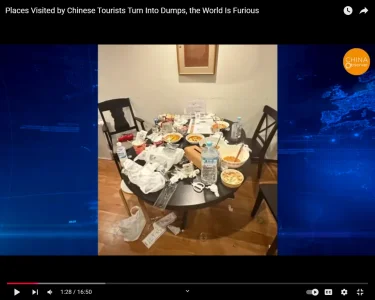China's home-grown biotech firms unlock global potentials
(
Xinhua) 09:37, December 14, 2024
A worker checks medicines at Shenyang Sinqi Pharmaceutical Co., Ltd. in Shenyang, northeast China's Liaoning Province, May 22, 2024. (Xinhua/Yang Qing)
SHANGHAI, Dec. 13 (Xinhua) -- Chinese biotech firms are emerging in a highly resource-intensive and time-consuming scientific innovation endeavor: drug discovery.
One of the latest examples was LaNova Medicines, a Shanghai-based biotech company, which secured a remarkable deal in November with its promising anticancer drug LM-299.
U.S. pharma giant Merck & Co., Inc., or MSD, obtained an exclusive global license to develop, manufacture and commercialize LaNova's clinical-stage novel investigational antibody, with a payment up to nearly 3.3 billion U.S. dollars.
"This agreement adds to MSD's growing oncology pipeline, and we look forward to advancing LM-299 with speed and rigor for patients in need," said Dean Y. Li, president of MSD Research Laboratories.
In the first half of 2024, China's innovative drug license-out deals reached 42 transactions, with the disclosed total transaction value increasing by 80 percent year on year.
Some companies have opted for the riskier path of going global on their own. In February 2022, Legend Biotech's Cilta-cel became the first Chinese CAR-T therapy to gain FDA approval in the United States for treating adult myeloma patients. It is priced at about 465,000 dollars per dose.
CAR-T is an immunotherapy involving the genetic engineering of a patient's T-cells to recognize and attack cancer cells.
BEST IN CLASS
The prospect of high profits draws Chinese biotech firms into the sector amid China's efforts to prioritize innovative drug discovery as a new economic engine. This year's government work report has highlighted it as an emerging industry alongside new energy vehicles, low-altitude economy, and commercial space, among others.
Competitiveness in the pharmaceutical industry hinges on securing core patents. Zanubrutinib, a cancer drug developed by Chinese biotech giant BeiGene, outperformed the U.S. blockbuster Ibrutinib in a "head-to-head" contest. Ibrutinib is the world's first BTK inhibitor, and it has been marketed and used for treating blood cancers.
The "head-to-head" clinical trial involves close combat where drug A challenges the established drug B to see which performs better. If A succeeds, it quickly rises to prominence; otherwise, it withdraws from the market.
Innovative drugs are typically classified as first-in-class, best-in-class, me-better, me-too, and me-worse. Until recently, China's pharmaceutical landscape was largely dominated by me-too and me-better drugs. Zanubrutinib is now a "best in class."
In 2023, Zanubrutinib achieved a total annual revenue of over 1 billion U.S. dollars for the first time.
UNMET DEMANDS
Chinese biotech entrepreneurs strategically focus on unmet medical needs to gain a foothold in international markets.
"Advanced colorectal cancer poses a significant medical challenge, with rising global incidence and mortality rates, and a dearth of effective new treatments," said Su Weiguo, CEO of Shanghai-based Hutchmed. "The United States has not seen a new drug approval in this field for 10 years."
In November last year, Hutchmed's fruquintinib received FDA approval for the treatment of metastatic colorectal cancer and was prescribed within 48 hours after the approval.
Junshi Biosciences, headquartered in Shanghai, made similar choices when exploring the U.S. market. "Our strategy is to prioritize the approval in the United States for nasopharyngeal carcinoma since it is a disease with unmet medical needs there," said Li Ning, CEO of Junshi Biosciences.
Overseas pharmaceutical titans are increasingly venturing into China for promising domestic biotech firms. AstraZeneca announced in February this year that it would establish its fifth global strategic center in Shanghai and support 30 Shanghai-based enterprises in their international expansion efforts.
FIRST IN CLASS
Some Chinese biotech firms are aiming high. They set their sights on groundbreaking first-in-class drugs with an ambition to lead in global innovation.
The first-in-class medication is a prototype drug that uses a "new and unique mechanism of action" to treat a particular medical condition.
So far, the number of approved China-designed first-in-class drugs has been few. Yet the landscape is on the cusp of transformation as an increasing number of home-grown players joined the game.
"China's 'low-hanging fruit' opportunities in drug discovery are dwindling, and only the more innovative first-in-class targets point to future prospects," said Chen Kan, co-founder of Qiming Venture Partners, which invests in new drug development.
Data from Pharmcube, a pharma consultancy, reveals that by August, China's new drug pipeline count stood at 5,380, representing over a third of the global total and nearly matching the United States.
Also, China ranks second globally in the number of first-in-class drug candidates poised to make debuts in the coming years.
Moreover, the rise of AI technology offers new possibilities for China's drug industry.
MindRank, a Hangzhou-based biotech firm, has harnessed AI drug discovery to develop a small molecule medication, MDR-001, targeting conditions such as obesity and type 2 diabetes.
This AI-driven approach enabled the research team to swiftly identify a preclinical candidate from nearly 100 molecules in just eight months. The drug candidate has now received clinical trial approvals in both China and the United States.
In 2023, XtalPi Inc., a Shanghai-based startup, introduced an AI-driven drug discovery solution that promises to overcome the speed limitations in chemical synthesis, enhance the success rate of drug development experiments, and reduce the development time for new drugs.




www.yahoo.com


 electrek.co
electrek.co



www.yahoo.com

dig.watch


